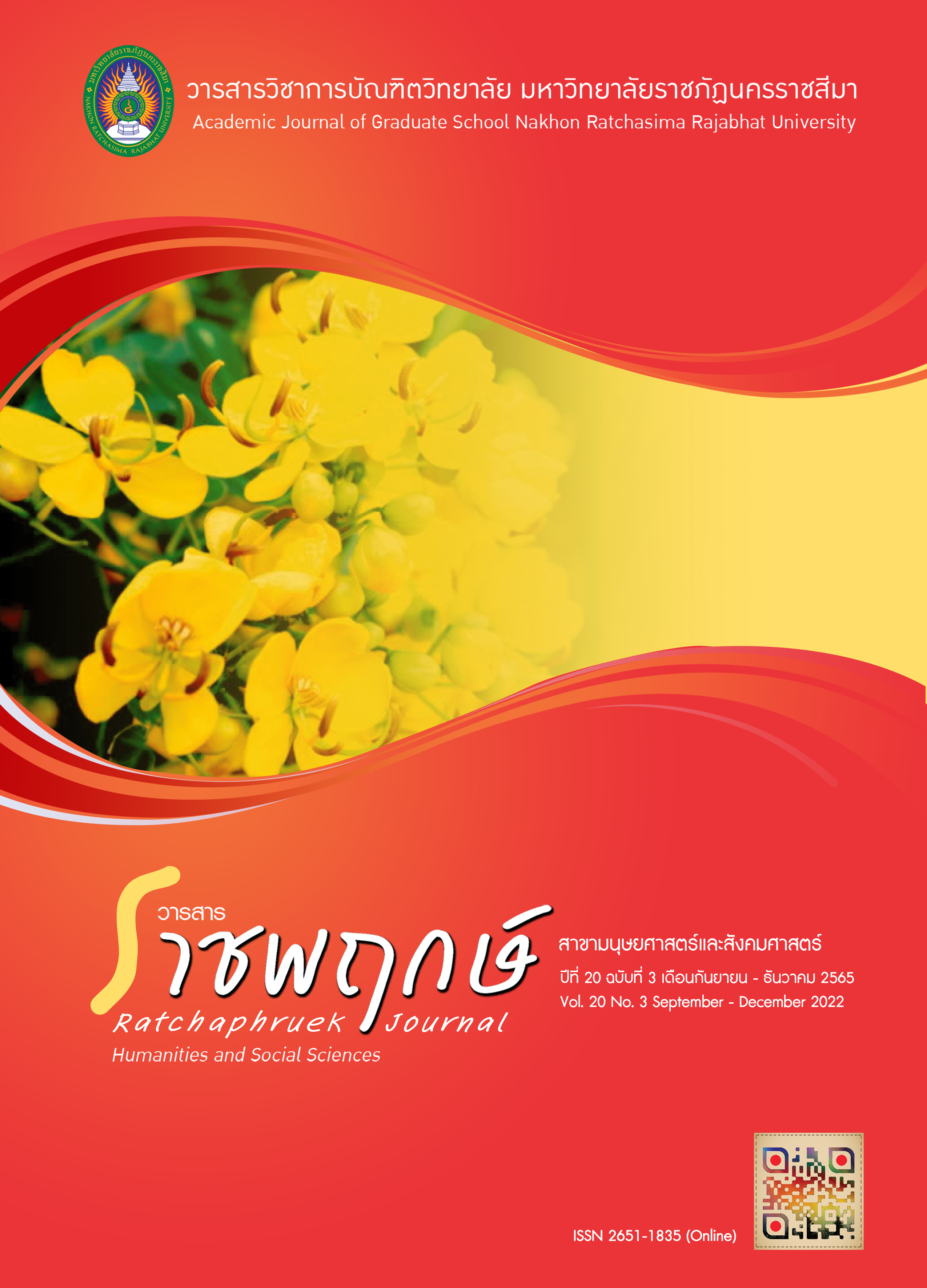Development of the Vocational Training Courses in Preparing the Reintegration of Former Juvenile Drug Offenders
Main Article Content
Abstract
This research was to develop the vocational training courses in preparing the reintegration of former Juvenile drug offenders. The purposes were: 1) To study the current situation; and 2) To develop two courses which were the course for working in the workplace and freelance. It was the qualitative research methodology by focus group discussions, in-depth interviews, and field visit as a case study. The key informants of in-depth interview were representatives of the Department of juvenile observation and protection, experts, social workers, representatives of the workplaces and Juvenile drug offenders undergoing vocational training in the training centers. A total of 58 key informants were included. The research instrument in the research was the structured interview form.
The research results were found that; 1) Vocational training currently did not have a clearly defined course. 2) The information has been developed in 2 courses that were a training course for working in the workplace and a training course for freelance which consisted of fundamental subjects, the core subjects, and the selective subjects according to the needs of labor market and aptitudes of Juvenile drug offenders undergoing vocational training.
Article Details

This work is licensed under a Creative Commons Attribution-NonCommercial-NoDerivatives 4.0 International License.
References
สำนักงานศาลยุติธรรม. (2563). รายงานสถิติคดีประจำปีงบประมาณ 2562. สืบค้นเมื่อ 25 มกราคม 2565. จาก https://oppb.coj.go.th/th/content/category/detail/id/8/cid/2085/ iid/196196.
ณัฐพล แก้วเกิด, วรรณดี สุทธินรากร และอุทุมพร อินจันทร์. (2564). พฤติกรรมแห่งความผิดพลาดความต้องการในอาชีพของเด็กและเยาวชนในศูนย์ฝึกอบรมเด็กและเยาวชนชาย. วารสารชุมชนวิจัย มหาวิทยาลัยราชภัฏนครราชสีมา, 15(1), น. 223-235.
พรชัย ขันตี, กฤษณพงค์ พูตระกูล และจอมเดช ตรีเมฆ (2558). ทฤษฎีทางอาชญาวิทยา: หลักการ งานวิจัย และนโยบายประยุกต์. กรุงเทพฯ: มหาวิทยาลัยรังสิต.
วรภัทร รัตนาพาณิชย์. (2562). กระบวนการติดตามเด็กและเยาวชนกระทำผิดภายหลังออกจาก กระบวนการยุติธรรม. วารสารสังคมศาสตร์และมนุษยศาสตร์ คณะสังคมศาสตร์ มหาวิทยาลัยเกษตรศาสตร์, 45(1), น. 366-394.
ธนัชชนม์ แจ้งขำ และสุกัญญา อุบลเหนือ. (2563). ปัจจัยที่มีความสัมพันธ์กับพฤติกรรมการกระทำความผิดของเด็กและเยาวชนศาลเยาวชนและครอบครัว จังหวัดสุพรรณบุรี. วารสารมนุษยศาสตร์และสังคมศาสตร์ มหาวิทยาลัยนครพนม, 10(2), น. 82-89.
Beauchamp, G. A. (1981). A Curriculum Theory (4th ed.). Illinois: F. E. Peacock.
Gottfredson, M. and Travis, H. (1990). A General Theory of Crime. Stanford, CA: Stanford University.
McClelland, D. (1973). Testing for Competence Rather than for Intelligence. American Psychology, 28(1), pp. 1-14.


